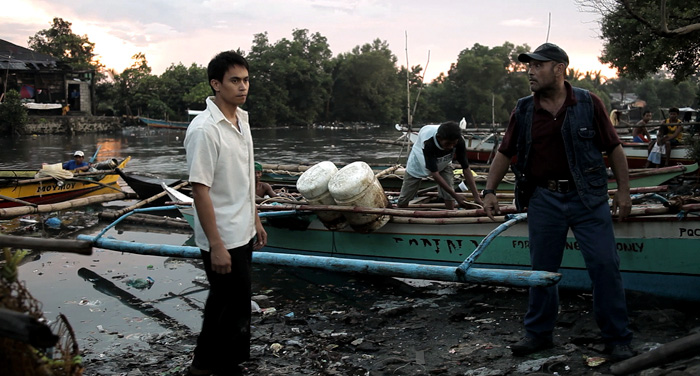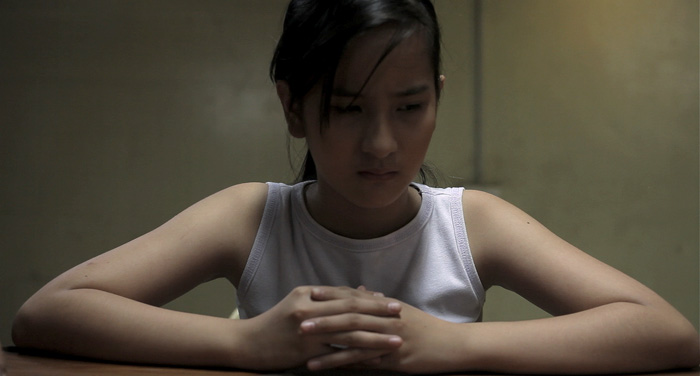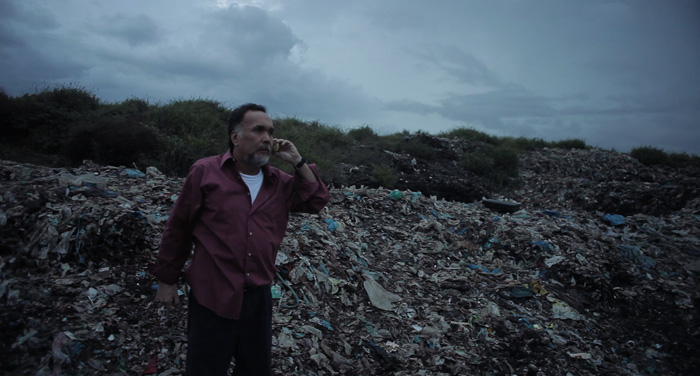Thrillers with a bit of amorality at their center are always a welcome treat when Hollywood seems too quick to make theirs possess ironclad happy endings. The thing about life is that good and bad are never so easy to define. Rarely does a heroic saint come along to wreak havoc in the name of justice and seldom does an unwitting innocent caught in a deceitful web have pure motivations. The sad reality is that whether humanity is good at heart or not, our propensity for selfishness and corruption towards selfish needs will always hover within arms reach when the going gets too tough and time too short. Blindly accepting the concept of black and white conflict without a bit of gray thrown in to keep it interesting is just plain naïve.

Writer/director Ron Morales’ sophomore feature film Graceland—he’s had a decade-long career in the grip department on such films as Spider-Man 3, Jumper, and Nick and Norah’s Infinite Playlist—refuses to pander to its audience by padding run-time with subterfuge when it can tell its story unfiltered and streamlined instead. We don’t need extra exposition to learn the dynamic between Marlon Villar (Arnold Reyes) and Congressman Changho (Menggie Cobarrubias) because the details of their relationship necessary for the central kidnapping plot to work will be revealed during the course of the investigation. It is so refreshing to have a filmmaker pop us in the action and tread water until everything becomes clear because good storytelling doesn’t need transparent explanation. All those paying attention need are the tools to piece everything together.
We therefore think nothing of a nervous, sweaty Marlon in his car awaiting a call from Changho to come and take his date home. An envelope of money is exchanged, the words “don’t let her drink anything else” are said, and the interaction appears to be merely one of many that have come before it. No, only when the politician leaves and Marlon enters the bedroom to see his passed out and naked package to delivery does understanding sink in. Looking at her clothed in the backseat of his car shows her age and the tearful, wrathful screaming of her grandmother the impact of the crime committed. This has been Marlon’s job for eight years, though, and asking questions is the last thing he wants to do with his own daughter and bedridden wife to support.

Without pause, Morales continues the story to show the aftermath of this latest sexual tryst and the tragedy following. The grandmother approaches the media, the congressman gets scrutinized under accusations, and Marlon is left holding the blame and three-months severance after being fired. And while all this occurs his 14-year old daughter Elvie (Ella Guevara) and Chango’s Sophia (Patricia Ona Gayond) decide to skip school for an afternoon shopping (stealing) to arrive late and wearing the others’ uniform on their ride home. Distraught with anger, Marlon begins his last drive to the Changho residence when he’s pulled over at gunpoint. Helpless to do anything for the girls in his backseat, he watches the kidnapping become botched beyond repair. From here it’s a plummeting downward spiral of lies and impossible decisions.
Extramarital affairs, corruption, and the horrors of the sex industry rear their ugly heads as Changho goes to the police for bribed assistance and Marlon is made to help the kidnappers achieve their goals. Both become desperate men with Detective Ramos (Dido De La Paz) interrogating Villar as an accomplice while the congressman tries to tell his wife they don’t have the ransom money. Cracks underneath the surface in the relationships between all characters open into deep chasms as each is forced to go against caution and do whatever’s in their power to save the girls. This means getting dirty, coming clean, and exposing themselves as the cornered souls they are rapidly approaching an end with little chance of joyous reunion.

Sprinkled by apparently casual lines eventually playing huge roles in explaining the motivations at work, Morales isn’t afraid to make his audience work. While the film’s biggest twist does end up surprising, it isn’t without brilliant foreshadowing to render it completely believable and almost insane to think we would have thought anything else. His goal never seems to be tricking us by purposefully leaving details out to be added later on for new clarity, though. Instead there is a conscious effort to build a second meaning around his dialogue that can be reversed once more of the story is given. A father’s anger turns into fear; a daughter’s fear into strength. Everyone involved—yes, even Elvie—receives a moral dilemma of which right and wrong are indefinable.
And this is Graceland’s beauty—an ability to finish its series of crimes in a way that lets its viewers condone nightmarish acts less heinous than the ones they react against. Morales leads us to accept one man’s transgressions in the name of love over another’s goal of pleasure. But should we draw that line? In a place like the Philippines where it appears corruption runs rampant and police play a large role, maybe we can. If the system’s failing and those we’re supposed to trust are the ones ruining the sanctity of our children, perhaps vigilantism is the only way. Does it excuse Visel’s (Leon Miguel) kidnapper’s actions? No. Does it excuse the heartbroken Villar’s part? No. What it creates is a captivating thriller devoid of easy answers that is a rare treat.
Graceland is available on VOD March 28th and arrives in limited theaters Friday, April 26th.

